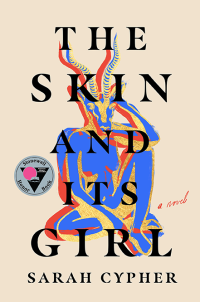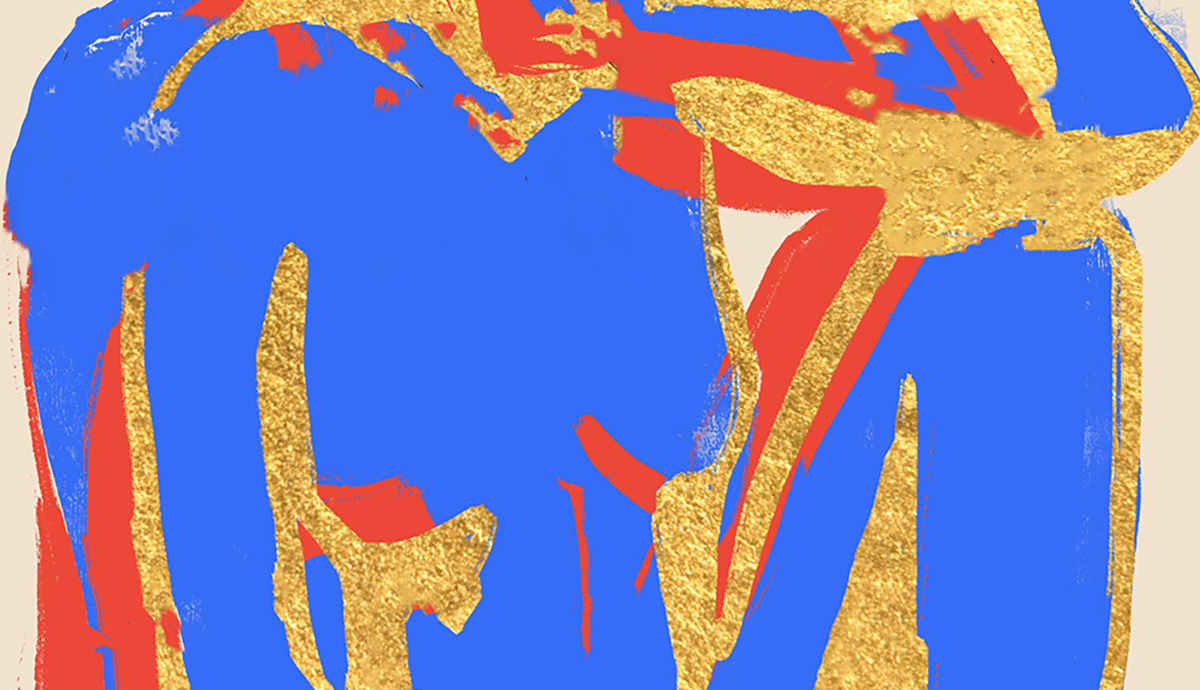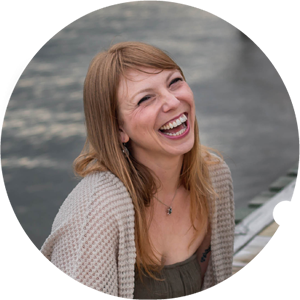A Review of The Skin and Its Girl by Sarah Cypher
There once was a girl and a silver gazelle.
They met in the hinterlands between sea and mountains, west of Nazareth, in a hilltop village built near the white bones of a Roman temple. The village called itself Maaloul. It had a church and a mosque and a spring …
Who remembers if it really happened? There is no truth but in old women’s tales.
—from The Skin and Its Girl by Sarah Cypher
If you want the full, twists-and-turns version of what happened between the girl and the gazelle—and why it mattered so much to a blue-skinned baby, born decades later in another land—I cannot give that story to you here. It involves fire and disguises, overseas journeys and an ancient soap factory, and Sarah Cypher unspools it expertly in her debut novel The Skin and Its Girl in prose so exquisite and supple that it feels embroidered onto the page.
The girl, for example, had “arms white as a peeled cucumber, more curves than a mountain road, smart eyes.” The gazelle: “legs slender and strong as saplings,” with a coat that “glittered with the dust of other horizons.”
And if you’re already catching the cadences of a love story, well—in the words of Betty Rummani, the novel’s young narrator: “Sometimes a gazelle is not a gazelle.”
 Betty’s full name is Elspeth Rummani, and she is born in a Portland, Oregon, hospital the very same week that her Palestinian family’s centuries-old soap factory in Nablus is bombed to rubble. Betty appears to be an entirely typical and healthy baby, except that her skin is the same brilliant blue as the famous soap her family once produced.
Betty’s full name is Elspeth Rummani, and she is born in a Portland, Oregon, hospital the very same week that her Palestinian family’s centuries-old soap factory in Nablus is bombed to rubble. Betty appears to be an entirely typical and healthy baby, except that her skin is the same brilliant blue as the famous soap her family once produced.
None of this seems like a coincidence to her elderly great-aunt, Nuha Rummani, who swoops in to stop Betty’s mother from giving her up for adoption. The Skin and Its Girl grounds itself in the events of Betty’s childhood, as she is raised by a trio of Rummani women: her mother Tashi, a scientist persevering through mental illness; her grandmother Saeeda; and Nuha, a brash but secretive storyteller.
The novel begins with Betty as a grown woman at Nuha’s grave, addressing her deceased aunt as she wrestles with a choice: Move abroad for love, or stay for family? The woman Betty loves is leaving for a faraway country; she can go with her if she’s willing to abandon the safe, discreet life she’s built (not easy to come by, as a blue-skinned woman) and leave her family behind—essentially becoming one more Rummani in exile. The novel moves back and forth between this crossroads and the story of Betty’s first nine years of life, frequently looping out into fables, family legends, world history, all overlapping and blurring into each other, with frequent forays into the supernatural and strange.
If it sounds complex, it is. And though the blue girl and her family mysteries are an intriguing hook, one of the most wonderful things about this story is that you cannot easily sum up what it is about. Yes, it’s an excellent pick for those drawn to queer love stories, multi-generational sagas, diaspora stories, speculative fiction that convincingly weds the fantastic with the world we know. Cypher has created so many points of entry, however, that a wide variety of readers will find something to resonate with here.
This is the power of individual stories, family stories, at times in history when the gut-wrenching loss of human life is regularly condensed into numbers and headlines.
Poets will appreciate the deft craftsmanship of her language and the recurring theme of the ghazal, the Arabic poetic form that serves as a vessel for love and longing.
Wisdom-seekers will enjoy gem-hunting; Cypher has a gift for dreaming up fresh aphorisms and scattering them throughout the story in a way that feels organic and earned. Deciding whether to stay or go, in light of her family’s experiences leaving the West Bank for America’s West Coast, Betty observes:
In all the crossroads real and imaginary, there is no Road of Return. It is possible to come back to a place, but there’s no undoing of the transformation that happens once the heart has chosen to leave.
Questions of exile and return are, of course, built into the history of Israel/Palestine.
The Skin and Its Girl was first published in April 2023—months before the October 7 Hamas attacks on Israel, and the retaliatory onslaught that has left nearly 34,000 Palestinians dead and 1.7 million people (75% of Gaza’s population) displaced. As many Americans back away from the conflict as “too complicated” to discuss, Cypher’s novel is an artful entry point for engaging with past and present and the human realities of both. History is treated with gravity, but also with wry humor: “It bears repeating here that the West Bank is one of the oldest places in civilization,” Aunt Nuha observes. “In Nablus, the bible isn’t the Bible; it’s a community anthology by a bunch of local writers.”
The modern-day repercussions of that history are played out in a searing chapter called “Story Hour with Interrogating Soldier.” Nuha and grandmother Saeeda travel to Nablus with young Betty in tow, for one final trip to see their homeland. As an adult, Betty reflects on the reason for their trip: “Against the profound fragmentation of your life, you wanted resolution.” This is not how the guards see them, as elderly women seeking some measure of closure and peace. Even with their US passports, they are detained and interrogated at the border by an Israeli official who regards the women “like a pair of land mines forgotten under the back garden for half a century, still theoretically dangerous.”
Everything in the scene—the interludes of history, the dialogue between the elderly women and their interrogators, “exposed since birth to the casual dislike of Aravim muloukhlakhim, dirty Arabs”—is clear in its moral compass, but never veers into polemic. This is the power of individual stories, family stories, at times in history when the gut-wrenching loss of human life is regularly condensed into numbers and headlines.
Extensive knowledge of the complexities of Israel and Palestine is not a prerequisite for connecting with this novel. It is enough to be a human with something, anything, that’s dearly important to you. The experience of loving or desiring something or someone. Navigating a complicated family. Storytelling, artisan trades, poetry, history. In The Skin and its Girl, Sarah Cypher has built a house with a hundred corners to explore, and many, many doors.
One of those doors, for me: the joy of finding a novel that effectively renders that aching feeling of not quite belonging anywhere, of feeling strange wherever you go. Betty’s navigation of daily life is rarely easy, but what a pleasure to watch her respond—unlike her tormented mother, constantly fighting the temptation to suicide—with an ever-fiercer conviction to live, to chase her curiosities. She writes:
I had already found books on Palestine and queer kids and Krishna and the blue people of Appalachia; about migrations and colonization and neocolonialism and how language shapes the brain. I had learned that trees might communicate with one another and heard all manner of fairy tales, and for every new thing I learned about myself in the world, the world only ever became larger, my hunger for it keener.
Many of us who grew up feeling somehow Other will recognize what Betty is describing here, too: the impulse to find ourselves reflected in books. The hope that if we travel far enough one day, we might even find others like us. In the hinterlands between sea and mountains, we too might meet a gazelle.
Recommended
Nor’easter
Post-Op Appointment With My Father
Cedar Valley Youth Poet Laureate | Fall 2024 Workshop






